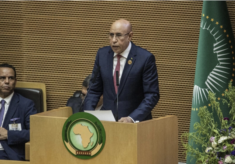In a region reeling from the destabilising effects of the frozen conflicts in Libya and the Western Sahara, the global economic downturn is paving the way for further instability down the road, despite ongoing efforts to improve the financial outlook amid a burgeoning public debt and deteriorating living conditions. The double shock of the COVID-19 pandemic and, more recently, the war in Ukraine, has indeed put additional stress on public finances, pushing inflation rates up and displaying the full extent of the ongoing energy and food crisis, especially in non-OPEC countries.
In this worrisome context, both Egypt and Tunisia have borne the brunt of the negative economic conjuncture, as soaring food and electricity prices have dramatically diminished the purchasing power of the population. While financial institutions are stepping up their involvement, the similarities between Cairo and Tunis are certainly striking, drawing a parallel that not only takes into account the recent interventions of the IMF; but also mirrors the democratic regression in both countries, inevitably converging on the same authoritarian page.
The future of Tunisia looks bleak. The US$1,98 billion preliminary deal agreed with the IMF in October comes after fuel shortages angered Tunisian people already suffering from empty shelves at supermarkets. Economic conditions have remained indifferent to the year-long effort by President Kais Saied to unilaterally impose his political roadmap, which, after the dissolution of the parliament and the reform of the constitution, will reach the finishing line with the general elections slated for the 17th of December. Protests by opposition parties have intensified, while the future of the same economic package hangs in balance after the lack of buy-in from the powerful Union Générale Tunisienne du Travail (UGTT).
Socio-economic conditions are inevitable deteriorating, representing the main push-factor for the migration. The tragic events in the Tunisian town of Zarzis, where angered residents staged protracted protests after the death of 18 migrants last September, represent a case in point, but other factors, including climate change and extreme weather events, are also putting thousands of people in other parts of Africa at risk of starvation. In these challenging conditions migrations flows across the Mediterranean Sea are very likely to increase in the short to medium-term.
For this reason, discussions in the COP27 currently held in Sharm el-Sheikh are extremely important, even though overshadowed by accusations of greenwashing against the Egyptian regime. Incidentally, at the end of October also Cairo has reached a US$3 billion funding deal with the IMF, after agreeing to switch to a more durably flexible exchange rate. Painful measures in prospect, that would further incentivise Egyptians to migrate. Facing this daunting prospect, the EU has already put in place a plan to stem the flow by agreeing to a border management programme with Egypt that replicates the externalisation policies successfully adopted elsewhere, despite growing humanitarian concerns.






















